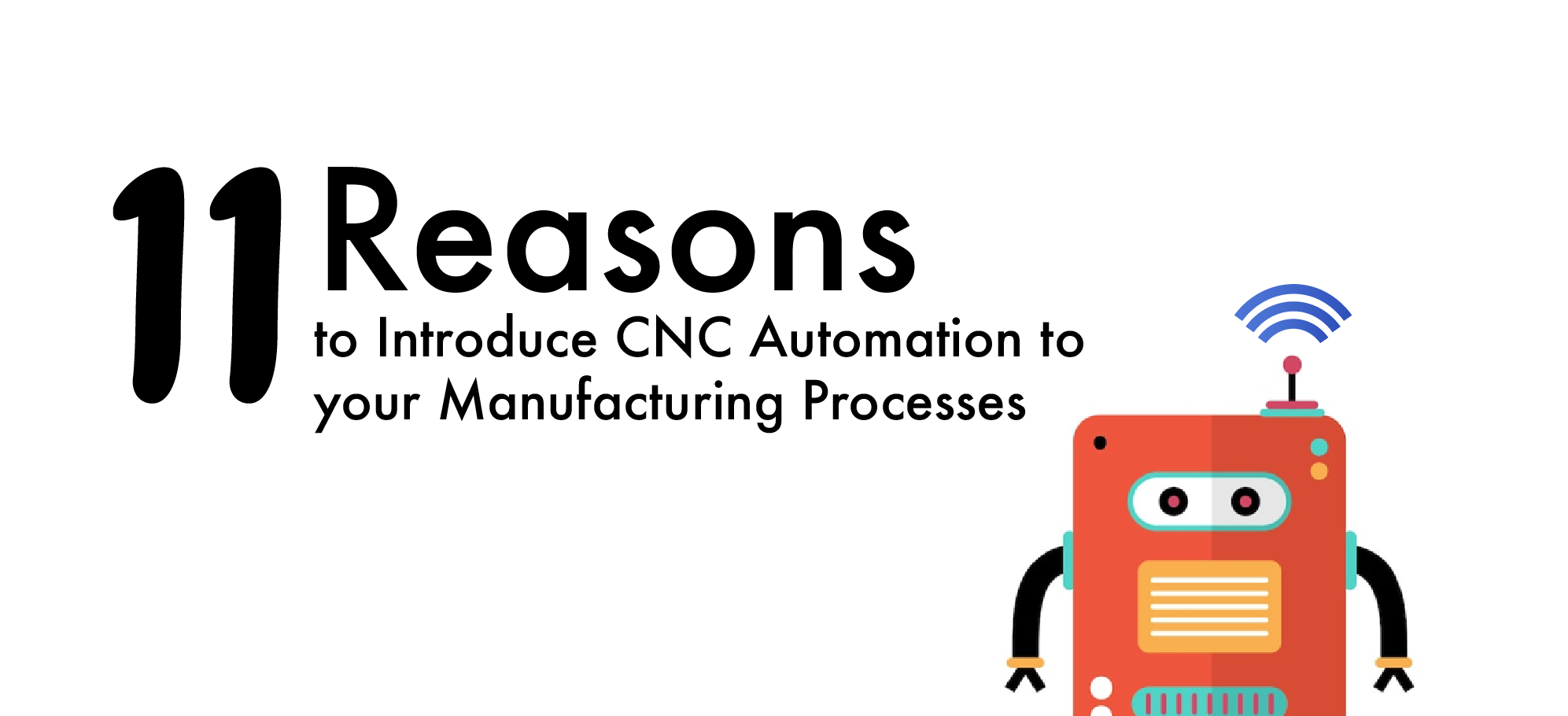
11 Reasons to Introduce CNC Automation to your Manufacturing Processes
Computer Numerical Control machines, or CNC machines, are automated devices that assist tools in working upon a series of commands to automate the process of production. It is widely used by many manufacturing businesses such as electrical, metalworks, furniture, and appliances.
To keep the production processes running in such times, manufacturing units need to utilize the power of CNC automation. This blog will examine why introducing CNC automation to your business will help you. So, let’s get started!
Benefits of CNC Automation in Manufacturing
Increased speed
CNC machines automate multiple manufacturing steps by collating them into one computer that executes them logically. By using CNC devices, processing times are reduced. These efforts are augmented, however, by automation, which further increases turnover rates. Among the most notable advantages of CNC automation is its ability to achieve faster-operating speeds.
A higher level of precision
CAD/CAM and CNC machines work together to maintain accuracy through iterative processes. The manufacturing process is, therefore, exact as a result of their use. A CNC machine that runs automatically requires no human intervention and can operate autonomously, so it is possible to run them nonstop without affecting the quality of the product. As a result, their efficiency exceeds that of human-run systems.
Reduced costs
CNC automation can assist companies in reducing costs. These machines simplify labor-intensive processes as the need to hire manual labor is reduced. Automating complex workflows is possible with CNC automation, thus facilitating the decision-making process.
Ensure your competitiveness
You can also keep your business afloat in market saturation by utilizing CNC automation to meet your industry’s urgent needs for high-quality products. This technology can also allow you to sell your products at competitive prices in other markets.
Scalability is enhanced
Automation using CNC technology allows companies to be more flexible and scalable. Consequently, they can expand operations or enter new territories without any difficulty.
Organizations can also speed up the production of small batches of products with CNC automation. Price fluctuations during peak season help them reduce their losses, which allows them to remain profitable.
Capacity enhancement
Using CNC automation, high-volume manufacturing lines can remain accurate. Additionally, they can reproduce the same item continuously without human error. Increasing capacity is possible because automated CNC machines operate at high speeds, have better accuracy, and run continuously.
Operational simplicity
The operation of CNC machines is straightforward under stable conditions. However, with automation added to the equation, managing these machines becomes even more convenient. Multiple CNC devices can be supervised, managed, and operated simultaneously by one operator. This can result in cost savings for manufacturing organizations.
A granular approach
Manufacturing processes are often outsourced to smaller workshops. CNC machines, however, make in-house manufacturing more economical and ease labor-intensive processes. Manufacturing in-house comes with several significant benefits, including greater control.
Waste and scrap reduction
Manual processes pose a problem for accuracy and reliability due to human error. Machined parts are often affected by these errors, necessitating the scrapping of parts.
It is paramount to perform probe setup, part alignment, and other manual processes correctly, mainly on 5-axis machine tools, to prevent parts from machining out of tolerance. With the help of CNC automation, it becomes possible to reduce waste generation as it minimizes the errors per unit of production.
Enhancement of safety
Human supervision is not required for automatic CNC machines. This ensures a safe working environment in the manufacturing facility. Operators only need to program the CNC with instructions, and the machine will do the rest.
Manufacturing facilities that deal with toxic or highly corrosive, or abrasive substances or with materials in harsh conditions, such as high temperatures, can greatly benefit from these devices. Operators benefit from them because they make their jobs easier and safer.
A reduction in downtime
CNC machines can be used as auxiliary power tools during scheduled downtime. When routine maintenance activities are performed, they can be moved to the desired location and kept in operation. When traditional machining equipment is out of service, it reduces the load or backlog.
Wrapping Up
Automating business operations with CNC automation may be a viable option for companies. In return, they can run their business smoothly, efficiently, and profitably.
In construction and manufacturing, automated CNC systems remove most of the risks associated with sudden failures. Consequently, timelines are shorter, and profit margins are higher. If you are looking to stay competitive in the industry, it is important that you produce uniform products in the shortest amount of time with the greatest efficiency. CNC machines can help you achieve just that. We hope that the above-mentioned reasons will convince you to introduce CNC automation to your manufacturing processes to improve the overall efficiency of your business.
About the Author:
Peter Jacobs
Peter Jacobs is the Senior Director of Marketing at CNC Masters. He is actively involved in manufacturing processes and regularly contributes his insights to various blogs on CNC machining, 3D printing, rapid tooling, injection molding, metal casting, and manufacturing in general.

Recent Comments